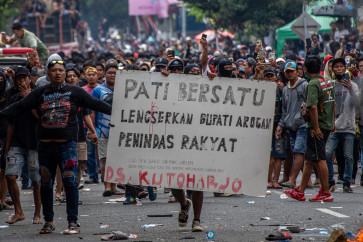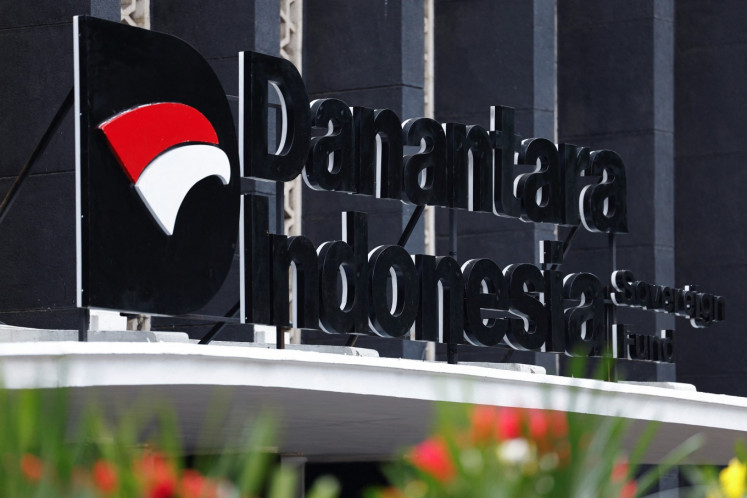Popular Reads
Top Results
Can't find what you're looking for?
View all search resultsPopular Reads
Top Results
Can't find what you're looking for?
View all search resultsUS-China rivalry could undermine ASEAN role in dispute
The rising China-US rivalry could further complicate the peaceful management of regional conflicts, including the six-nation territorial dispute in the South China Sea, scholars have warned
Change text size
Gift Premium Articles
to Anyone
T
he rising China-US rivalry could further complicate the peaceful management of regional conflicts, including the six-nation territorial dispute in the South China Sea, scholars have warned.
Ralf Emmers of the Nanyang Technological University in Singapore noted that China was undoubtedly becoming the world's most important rising power.
To deal with China, the US announced its 'pivot' to Asia in 2011 and a plan to deploy 60 percent of its naval might to the Asia-Pacific region. This has resulted in an escalating rivalry between the two nations.
The 10-member Association of Southeast Asian Nations (ASEAN), which has a long history in managing regional conflicts, could face tough challenges in its efforts to prevent escalation of tension surrounding territorial disputes.
'The Southeast Asian states do not want to have to choose between the United States and China as this would ultimately reduce ASEAN's unity, neutrality and centrality,' Emmers said at an international seminar on 'ASEAN Unity and Maritime Challenges in South China Sea and Asia Pacific', in Bangkok on Thursday.
The one-day seminar was jointly organized by the Center for Asian Strategic Studies ' India and the Bangkok-based Institute of Security and International Studies.
'China-US rivalry will seriously undermine the strategic autonomy of ASEAN countries in managing regional disputes,' he said.
Despite the rivalry, Emmers said the presence of major players in the region would contribute positively to regional peace and security.
'The more international players are involved, the closer we get to achieving peace in the region,' Emmers told The Jakarta Post.
Emmers cited Indonesia's role in helping defuse the tension, saying the country had organized a series of informal negotiations among South China Sea claimants for more than two decades.
He also noted Foreign Minister Marty Natalegawa's shuttle diplomacy in July 2012 after ASEAN ministers failed to issue a joint statement during their meeting in Cambodia, due to differences on the South China Sea issue.
Dinna Wisnu of the Paramadina Post-Graduate School of Diplomacy referred to a unique ASEAN way, which is similar to the Indonesian way, and which could be applied in such situations.
'ASEAN has the ASEAN Way of resolving disputes. The best way to describe it is by understanding the practice of 'musyawarah and mufakat' [deliberation and consensus] in the Indonesian tradition,' Dinna said, adding that disputes were resolved through mutual discussions and consultations involving all conflicting parties.
'No parties should be excluded,' she said.
The South China Sea ' known in China as the South Sea, in Vietnam as the East Sea and in the Philippines as the West Philippines Sea ' is a region rich in fisheries and hydrocarbon reserves and provides the shortest route between the Indian and the western Pacific Oceans.
Overlapping claims of sovereignty in the area are have been made by China, Vietnam, Taiwan, the Philippines, Malaysia and Brunei.
Vo Xuan Vinh from the Vietnam Academy of Social Sciences underlined that freedom and safety of navigation in the South China Sea must be respected and protected by all.
He emphasized the importance for ASEAN to work as a single entity in implementing agreements and to work within its legally-binding code of conduct.
ASEAN signed the Declaration on the Conduct of Parties in the South China Sea (DOC) with China in 2002.
'ASEAN member states need to maintain and cement their solidarity and speak with one voice based on their agreed documents/agreements,' Vo said.










